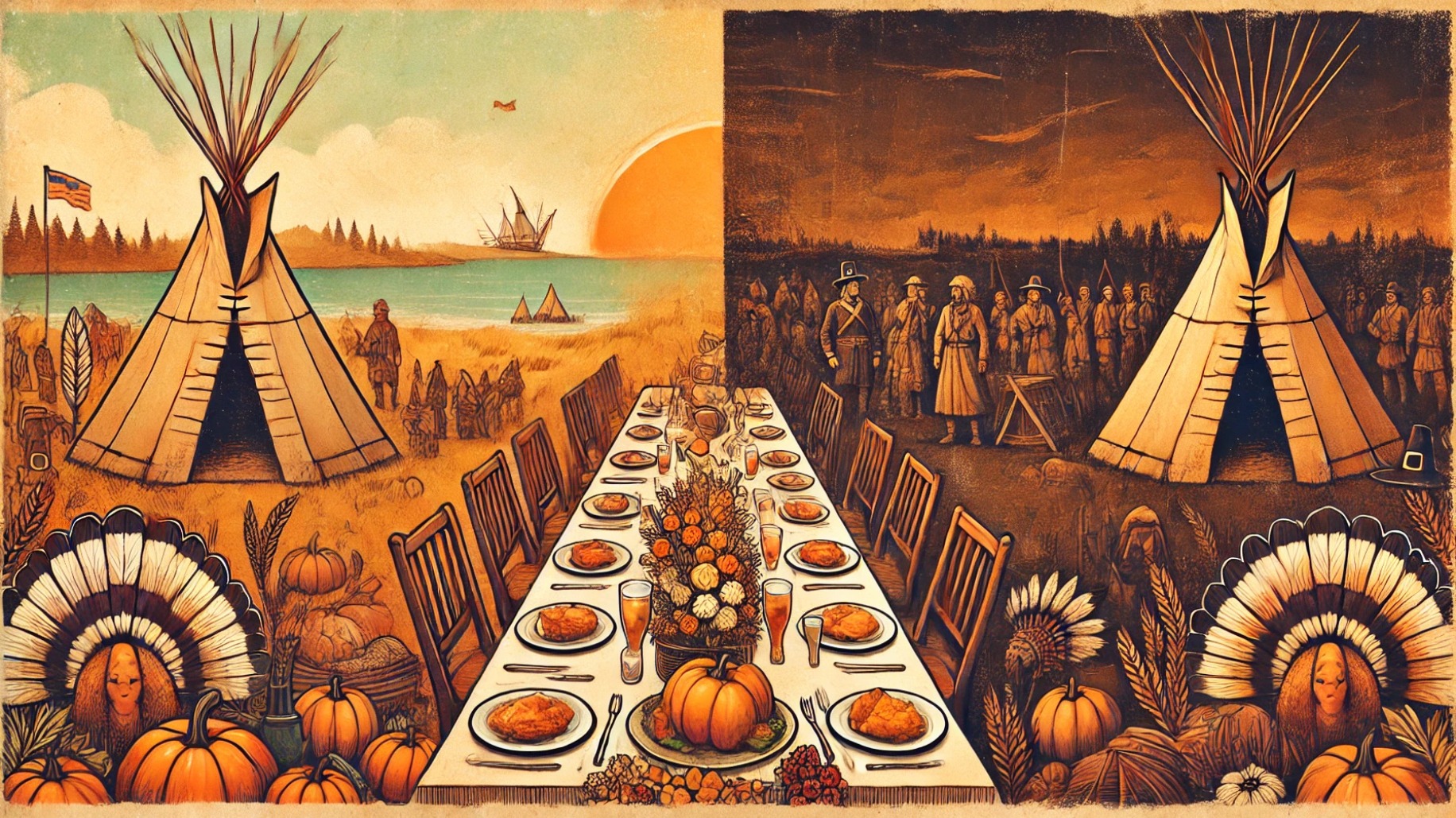Thanksgiving is often portrayed as a day of togetherness, gratitude, and indulgence, centered around turkey dinners and family gatherings. Yet, behind this warm and festive facade lies a complex and often ignored history—a dark narrative rooted in colonization, displacement, and the suffering of Indigenous peoples.
As we celebrate Thanksgiving today, it’s crucial to look beyond the surface and confront the uncomfortable truths about its origins. By doing so, we can foster a more meaningful observance of the holiday, one that reconciles history with the essence of giving thanks.
The Dark History of Thanksgiving
The modern Thanksgiving holiday is frequently traced back to 1621, when Pilgrims and the Wampanoag people shared a harvest meal. While this event is often romanticized as a peaceful and cooperative gathering, the broader historical context tells a different story.
The arrival of European settlers in the Americas led to widespread violence, the theft of Indigenous lands, and the decimation of Native populations through war and disease. While moments of cooperation, like the 1621 feast, did occur, they were often overshadowed by betrayal and bloodshed. For many Indigenous people, Thanksgiving is not a celebration but a reminder of colonization’s devastating impact—a National Day of Mourning.
Ignoring this history perpetuates the erasure of Indigenous voices and experiences. The sanitized narrative of Thanksgiving, taught in schools and reinforced in popular culture, reflects a broader pattern of whitewashing history to avoid confronting uncomfortable truths. This avoidance not only dishonors the memory of those who suffered but also weakens our collective ability to learn from the past.
Modern Traditions and Cultural Blind Spots
Today, Thanksgiving is a day to express gratitude, enjoy family traditions, and, for many, indulge in consumerism with the looming shadow of Black Friday. However, it is also a day rife with contradictions.
- Family Conflicts at the Table
Thanksgiving gatherings often become battlegrounds for political or ideological debates, particularly in today’s polarized climate. Instead of fostering gratitude and unity, these conflicts expose deeper divides and undermine the holiday’s intended purpose. - Ignoring Historical Repercussions
By focusing solely on food, football, and sales, many people unintentionally trivialize the holiday’s historical context. This selective memory perpetuates systemic issues, such as the marginalization of Indigenous communities, whose struggles for sovereignty, environmental justice, and cultural preservation remain ongoing.
A Call to Reframe Thanksgiving
Despite its complicated past and present, Thanksgiving offers an opportunity to reflect on gratitude and the potential for healing. A more honest and intentional approach to the holiday can bridge the gap between its history and its essence.
- Acknowledging the Truth
Begin the day with a land acknowledgment to honor the Indigenous peoples who stewarded the land long before European settlers arrived. Educate yourself and others about the history of colonization and its lasting impacts. - Practicing Gratitude Authentically
Shift the focus from consumerism and perfectionism to genuine acts of gratitude. Consider expressing thanks not just for personal blessings but for the contributions of Indigenous cultures and the resilience of marginalized communities. - Building Bridges at the Table
Family conflicts often stem from a lack of understanding and empathy. Use Thanksgiving as an opportunity to listen, share, and connect. Avoid divisive debates and focus on common ground—perhaps by discussing what everyone is truly thankful for.
Conclusion: Honoring the Past, Embracing the Future
Thanksgiving is a holiday of duality: it carries a painful history of injustice alongside a tradition of gratitude and togetherness. Reconciling these truths requires courage and compassion—a willingness to confront the past while committing to a more inclusive and intentional celebration.
By honoring the stories of those who came before us and focusing on the true essence of giving thanks, we can transform Thanksgiving from a day of contradictions into one of reflection, connection, and hope for a more equitable future.









No responses yet